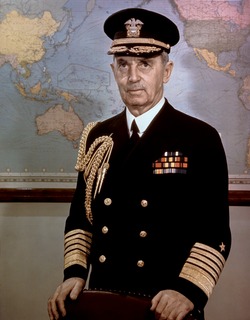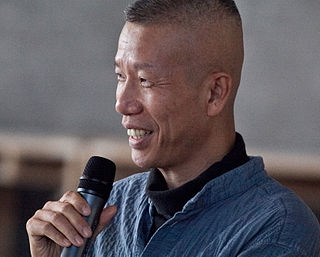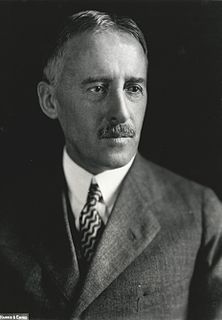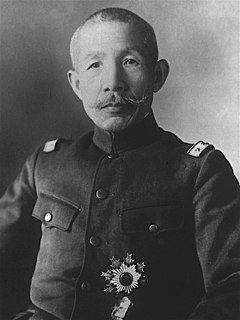A Quote by Dwight D. Eisenhower
I had been conscious a feeling of depression and so I voiced to [Secretary Of War Stimson] my grave misgivings, first on the basis of my belief that Japan was already defeated and that dropping the bomb was completely unnecessary, and secondly because I thought that our country should avoid shocking world opinion by the use of a weapon whose employment was, I thought, no longer mandatory as a measure to save American lives. It was my belief that Japan was, at this very moment, seeking a way to surrender with a minimum loss of 'face.'
Quote Topics
American
Avoid
Basis
Because
Been
Belief
Bomb
Conscious
Country
Defeated
Depression
Dropping
Employment
Face
Feeling
First
Grave
Had
Japan
Lives
Longer
Loss
Mandatory
Measure
Minimum
Misgivings
Moment
Opinion
Our
Our Country
Save
Secretary
Seeking
Shocking
Should
Surrender
Thought
Unnecessary
Use
Very
War
Way
Weapon
Whose
World
Related Quotes
It is my opinion that the use of this barbarous weapon at Hiroshima and Nagasaki was of no material assistance in our war against Japan. The Japanese were already defeated and ready to surrender... In being the first to use it, we had adopted an ethical standard common to the barbarians of the Dark Ages.
If we [Americans] are a strong people, a united people, why do we always have to hear how great we are? What is this self-love? Where does this come from? It got worse, because after the war we thought we'd won it. That's the first myth. Frankly, Russia won it. The Soviet Union sacrificed far greater form than anyone else to win that war. Secondly, we had the atomic bomb. We should not have dropped it on Japan. We did as an example to the Soviets, not to defeat Japan and to save American lives. These are myths that we explode with a lot of research early on.
The use of [the atomic bombs] at Hiroshima and Nagasaki was of no material assistance in our war against Japan. The Japanese were already defeated and ready to surrender because of the effective sea blockade and the successful bombing with conventional weapons... The lethal possibilities of atomic warfare in the future are frightening. My own feeling was that in being the first to use it, we had adopted an ethical standard common to the barbarians of the Dark Ages. I was not taught to make war in that fashion, and wars cannot be won by destroying women and children.
The atom bomb was no “great decision.” It was used in the war, and for your information, there were more people killed by fire bombs in Tokyo than dropping of the atomic bombs accounted for. It was merely another powerful weapon in the arsenal of righteousness. The dropping of the bombs stopped the war, save millions of lives.
Even though China was a very closed country, they thought of themselves as the center of the world. It is an ethnic characteristic. After I went to Japan, I had a totally different view. The Japanese are always talking about what the Western world is doing. There is the anxious feeling of an outsider.
Japan suffered terribly from the atomic bomb but never adopted a pose of moral superiority, implying: 'We would never have done it!' The Japanese know perfectly well they would have used it had they had it. They accept the idea that war is war; they give no quarter and accept none. Total war, they recognize, knows no Queensberry Rules. If you develop a devastating new weapon during a total war, you use it; you do not put it into the War Museum.
I remember my very first encounter with Japan. At that time, I was Deputy Mayor of St Petersburg. Out of nowhere, Japan's Consul General in St Petersburg came to my office and said Japan's Ministry of Foreign Affairs wanted to invite me to Japan. I was very surprised because I had nothing to do with Japan except being a judoka. This was an opportunity to visit Tokyo and a couple of other cities. And, you know, a capital is a capital everywhere: there is the official script and certain protocol. It is always easier to talk in the provinces, the conversation is more natural.
Because my parents were American missionaries who sent me to public schools in rural Japan, I had to confront Hiroshima as a child. I was in the fourth grade - the only American in my class - when our teacher wrote the words "America" and "Atomic Bomb" in white chalk on the blackboard. All forty Japanese children turned around to stare at me. My country had done something unforgivable and I had to take responsibility for it, all by myself. I desperately wanted to dig a hole under my desk, to escape my classmates' mute disbelief and never have to face them again.
Frivolous thinking is due to foreign thought. Japan must no longer let the impudence of the white peoples go unpunished. It is the duty of Japan to fulfill her natural destiny, to cause China to respect the Japanese, to expel Chinese influence from Manchuria, and to follow the way of imperial destiny.
































